It seems like weeds couldn’t possibly serve any beneficial purpose, right? Think again! The benefits of weeds are actually quite impressive!
I feel like I have become a weed evangelist lately! No, it’s not like that… 😉
“Weeds” as in the all-natural, annoying-as-heck plants that you just can’t seem to get rid of. Yep, those weeds!
I grew up in a home where every weed that dared to poke it’s head through the ground immediately received the RoundUp treatment. For a while, I lived this way too. But then something amazing happened: I learned that weeds are not the enemy! In fact, weeds can be very beneficial for your homestead!
It took me a long time to come to peace with weeds being a part of my life. Modern American society has demonized weeds for so long that most of us don’t realize the benefits they offer! If we want to be good stewards of our natural resources, we need to shift our mindset and the way that we view weeds. I realized that if I want to live a life where I partner with nature rather than fighting against it, I was going to have to make friends and play nicely.
As I started to change my relationship with weeds, I finally began to understand that weeds actually have a purpose! It was like a lightbulb moment! I still pull weeds, and I use all natural methods to control or suppress them in certain areas (like our garden pathways and raised beds), but we have plenty of weeds on our property… and I am happy to say that I am truly okay with it!
** I may receive a commission at no additional cost to you from purchases made through links in this article. Full Disclosure Link **
Here’s the top ten reasons that I’m making peace with weeds:
1. Bare ground does not equal healthy ground
We often strive to maintain perfectly weed-free bare ground because it’s aesthetically pleasing. But is that really the healthiest (and most realistic) option? Bare ground is generally nutrient-deficient, poor quality soil. Think about a forest – it’s lush and green, with all sorts of naturally growing undergrowth, shrubs and trees. There’s hundreds of different creatures, including micro-organism, insects, birds and larger animals. Now, compare that to a desert. The ground is bare and there are limited varieties of plants and animals. There is little protection from the elements and conditions can be very harsh. Where would you prefer to start your homestead if you got to choose? I would most certainly choose the forest which would have much richer and more lush soil! Your soil is the same way. Not only is it unrealistic to have bare soil, it’s also often at the detriment of your soil quality. Speaking of soil quality….
2. Weeds are an indicator of soil quality.
Weeds can be extremely helpful – if you know what they are trying to tell you! Weed infestations are usually due to a soil imbalance or disturbance, such as too much or too little moisture, nutrient deficiencies, high or low acidity levels, etc. Before you grab your bottle of weed killer, take the time to figure out what your soil is really asking for (and seriously, just put down the bottle!). Balancing your soil and creating a healthy base for your lawn/pasture/garden is one of the best ways to control weeds! Testing your soil and consulting with a knowledgeable organic gardening professional can be a very beneficial in your battle to maintain weeds. Just remember that like all good things, it takes time to naturally balance your soil. You probably won’t see results as fast as you do with chemical fertilizers or weed killers, but you will reap the long term benefits of having healthy, balanced soil.
3. Weeds attract pollinators
Flowering weeds attract all sorts of pollinating insects. This benefits your garden and the pollinators! Spraying weeds with chemicals can be harmful to local wildlife and beneficial insects. There is a lot of contention about whether or not chemical herbicides are harmful to insect (and people for that matter!) and arguments can get very heated. Do your own research and form your own opinion. My opinion is that I would rather have dandelions in my yard than be filled with regret one day about the damage that I caused. It’s just not worth it, people… they’re just weeds.
Want to attract even more pollinators? Consider making a “Pocket Pollinator Garden”!
4. Weeds feed and attract micro-organisms, insects and worms
Weeds help create a healthy environment for all sorts of beneficial insects and organisms, which are definitely things that you will want on your homestead! Microorganism and worms break down organic matter into humus, which creates healthy and happy soil. As weeds die and decay, the roots break down to feed microorganisms and provide pathways and tunnels for worms. There are also many weeds that will attract beneficial insects when they bloom!
5. Weeds provide beneficial ground cover
Think of weeds as the ultimate cover crop! Cover crops are a very important for no-till gardeners like myself. Cover crops are sown after your primary crop is harvested (usually in the fall). Over the winter, the cover crop helps protect the soil from the elements, feeds beneficial micro-organisms, and provides nutrients to the soil. In the spring, before planting begins, the cover crop is tilled under and allowed to decompose. The decomposing weeds increase organic matter and provide nutrients as they break down. Many non-grassy weeds can be treated in the same manner as cover crops. In fact, one of the most popular cover crops is also a well-known weed: clover!
As an alternative, you may want to consider these ground cover plants that also attract pollinators!
6. Weeds can help provide nutrients for other plants
Weeds are some hardy plants! If you’ve ever tried to dig out the root of common mallow (aka “creeping charlie”) you’ve experienced the powerful and massive taproot that many weeds have! That giant root may seem like a big inconvenience if you are trying to pull the weed, but the taproot serves a very important purpose. Taproots break up hard-packed layers of soil which makes it easier for the roots of other plants to permeate. Those long taproots also pull up nutrients and moisture from deeper levels of the soil which can be made available to other plants.
7. Weeds can help fix our mistakes
In our excitement to create the perfect garden/orchard/pasture/etc, we sometimes try too hard! We apply too many fertilizers (even the organic ones), too much water, or the wrong type of nutrient all together! Our best efforts can become detrimental to our plants and soil. In these situations, the best thing that we can do sometimes is to take a backseat and let nature do its thing! Weeds are opportunist, so they move in when they find that there is an imbalance that they can take advantage of. In the example of over-fertilizing a crop, weeds can actually help absorb a lot of the fertilizer and slowly help return balance to the area. Once the balance has returned, you can begin tilling the weeds under to provide organic matter and natural nutrients.
8. Weeds prevent erosion
As mentioned earlier, bare land can be detrimental. Since the rise of commercial farming, soil erosion and loss of topsoil has become a big problem. Weeds again, can help in this area. Weeds with fibrous roots have web-like root structures that help hold soil in place. Soil will be less likely to be washed away by irrigation or rainfall. Fibrous-rooted weeds can also help trap and hold moisture just below the surface level, making it available to other plants.
9. Weeds can be delicious (and medicinal!)
Once you dive into the world of understanding weeds, you will be shocked by how many edible weeds are growing right in your yard! Purslane, chickweed, henbit, dandelion, and mallow are just a few common weeds that can be found in suburban yards. Edible weeds are usually very high in vitamins and minerals. Depending on the type of weed, you can usually add them to a salad, blend them into a green smoothie, sauté them, or dry them for seasonings or tea. Be very careful to positively identify plants before ingesting, as many weeds have look-alikes. A guide book about foraging in your area and the help of a knowledgeable friend will be very beneficial! If you are in the western US like I am, I highly recommend one of Ray Vizgirdas’ guidebooks!
10. Not constantly fighting nature
If you have ever looked at pictures of abandoned amusement parks, you have probably noticed how nature has a way of taking things back and returning them to a natural state. That’s why we are constantly fighting against nature to claim what is “ours”. Domestic cultivation isn’t a bad thing, but there needs to be a balance. A lot of times, we can learn from what nature is doing. Constantly fighting off weeds is time-consuming, and you probably will never actually win the fight to have a weed-free property. It’s okay to not have a perfect yard, a perfect garden or a perfect homestead. It’s okay to let nature have her own way sometime. We will all benefit from it!
If you like it then you better put a pin on it!
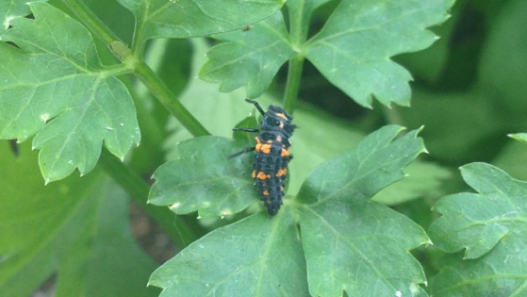
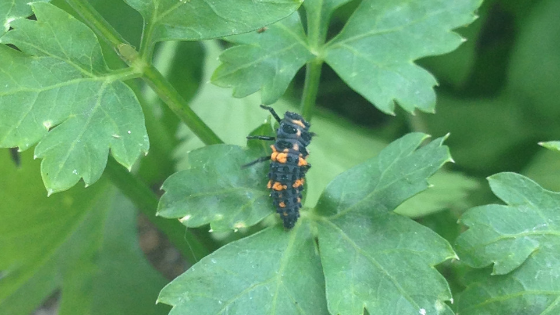
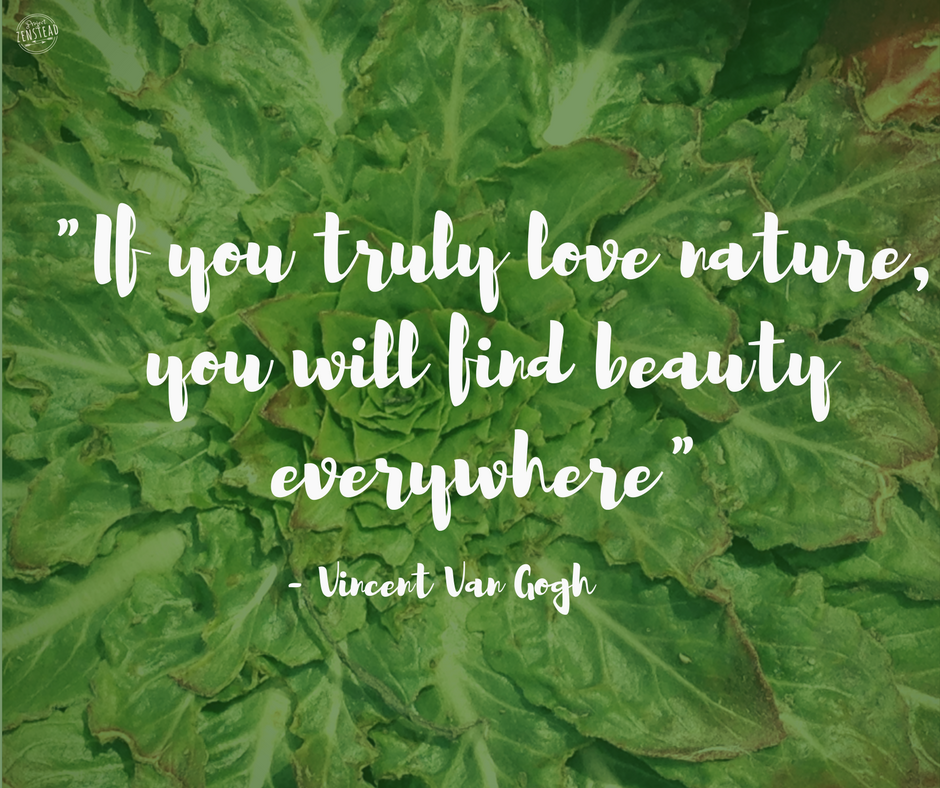






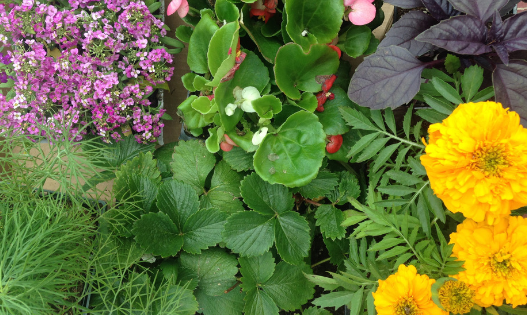
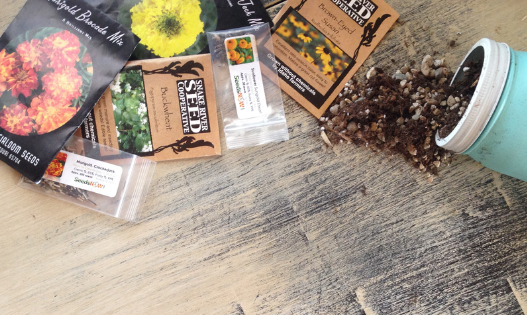
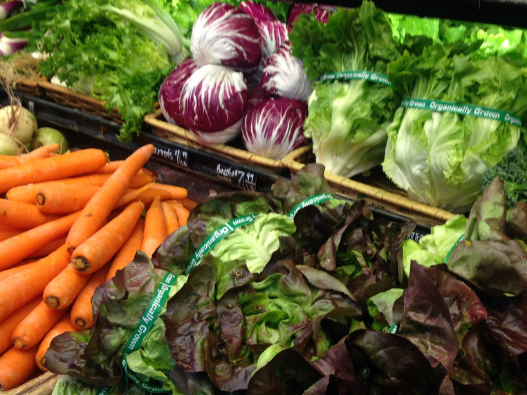
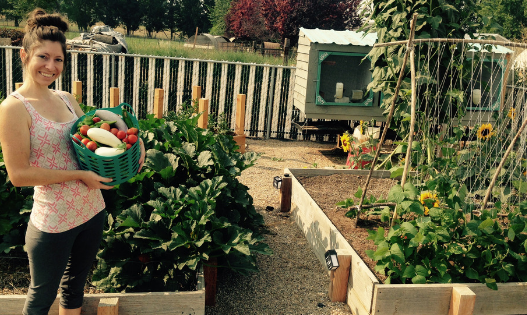

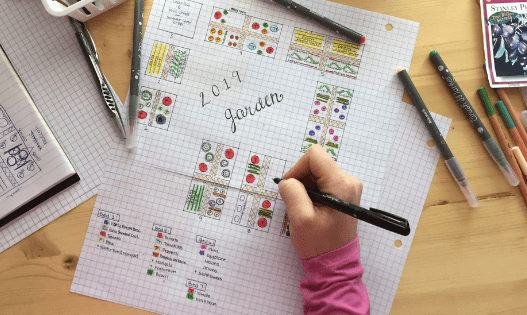
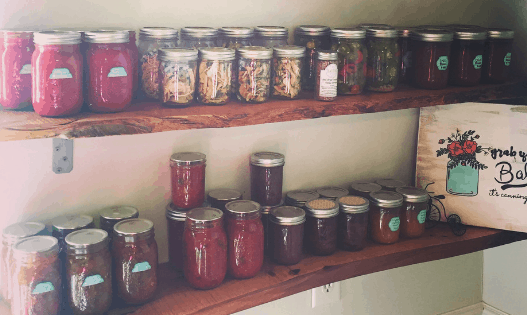
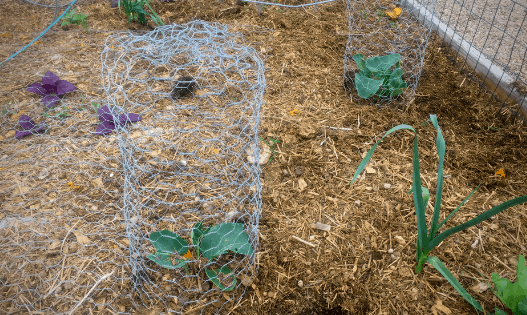
Excellent post! I wish more people were tolerant of weeds, or would at least embrace a different viewpoint on what ‘looks good’ in a garden!
Thanks, Melissa! It’s true – I think we have been trained as a society to think that all weeds are automatically bad. It’s true that there are some noxious weeds (goatheads… need I say more?!) but most are harmless!
BTW… Love your website and your posts! You always give such good detailed info! Can’t wait to keep reading more! 🙂
I love this post! The past few years I have let me garden get “wild” (according to my neighbor 😉 I actually love the wild look now and do it for the ground cover/preventing erosions aspect as well as a bit of foraging. However, I had no idea about the other ways that weeds are beneficial. It makes so much sense though!! We need to stop fighting Mother Nature and work with her!
I am sucker for the “wild” look too. There just aren’t enough of them left anymore! There’s nothing about a manicured lawn that eggs you to come explore it like a wild space does! ♥️
This is all so true! I’ve come to love our weeds and be grateful for them, especially how they prevent erosion. We get some pretty crazy rainstorms in the summer. Weeds make great green manure, too. I’m glad not to live in a city anymore where people tend to freak unnecessarily about weeds. 🙂
Such a blessing to live in a place where weeds, even if they aren’t valued, are at least tolerated! ?
Great info! I totally agree. We used Back to Eden’s method when we had a farm, and it worked really well. This mentality really goes against the flow of what most people believe these days, but it’s so good, and really works! Thanks.
I really enjoy a lot of the principles of the Back to Eden method too! It’s much easier to work with nature instead of working against it!
I love this perspective on weeds. We used to put so much effort into our yard and dumped so much money and chemicals on it. Then I switched to a more natural lifestyle and just stopped fighting it! I am definitely going to check out that book your recommended. We plan to start an organic backyard garden this year so it will be good to know what weeds are friendly!
Yes! Finding a good resource for your area is so valuable! There are so many edible and medicinal weeds that are often growing right under our noses in our own back yards! You can also contact your local Master Gardeners group or Extension Office if you need help identifying a particular plant 🙂
Wow! This was a great post! So interesting!
I had no idea about a lot of this. I can’t believe that weeds are an indicator of soil quality, and that they have so many other benefits!
Just another testament to the fact that we need to have a little more faith in Mother Nature.
We always leave a patch of weeds in the garden for the bees. They love the weeds and the dandelions!
That’s a great way to help take care of the bees! Love it!